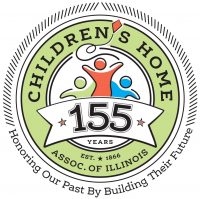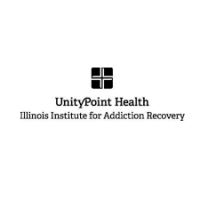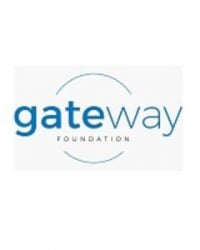The Human Service Center - Community Crisis Center
Drug Rehab Center in Peoria, Illinois
- Opioid Addiction
- Alcoholism
The Human Service Center - Community Crisis Center is an accredited addiction treatment facility in Peoria, IL, offering various levels of outpatient care, detox, and aftercare support for individuals with alcohol or opioid addiction.
About The Human Service Center - Community Crisis Center in Illinois
Located in Peoria, Illinois, The Human Service Center–Community Crisis Center specializes in offering a 12-step focused approach to drug and alcohol rehabilitation. With a mission to provide comprehensive crisis intervention services, the center features medically supervised detox, outpatient care, and aftercare support. It stands out by offering dedicated programs for young adults, persons with HIV/AIDS, and individuals dealing with co-occurring addiction and mental health issues, within its 12-bed facility.
The facility is recognized for its high standards, accredited by SAMHSA and the Joint Commission, ensuring quality care for its clients. It accepts a variety of payment options including private insurance, Medicare, and Medicaid. With an emphasis on long-term recovery, The Human Service Center–Community Crisis Center offers intensive outpatient programming, case management, and a robust continuum of care tailored to meet clients' evolving needs.
- Specialized care for young adults and individuals with HIV/AIDS highlights the center's commitment to serving diverse populations in need.
- Medically supervised detox with FDA approved medications provides a safe and supportive start to the recovery journey.
- Intensive and standard outpatient programs, including CBT and life skills training, support clients through every stage of recovery.
The center addresses a wide range of addictions, including opioid and alcohol dependency, offering treatment methods such as cognitive behavioral therapy (CBT), medication-assisted treatment (MAT), and dual diagnosis care. Care levels range from medically supervised detox and intensive outpatient programs to standard outpatient care and aftercare support, ensuring a holistic approach to rehabilitation and recovery.
Genders
Ages
Modality
Additional
Accreditations
State License
SAMHSA

JCAHO
Conditions and Issues Treated
Opioid addiction is a common form of addiction, often caused by prescription drugs that are abused. Addiction is treated by detoxifying the body and following up with therapies to correct behavior and target the root of the problem.
Most opioid addiction begins with patients being prescribed painkillers after an injury or surgery. The body becomes used to the chemicals in these medications and soon no longer responds to their presence. As a result, addicts seek out stronger opiate-based medications like Oxycodone to compensate for the lack of effectiveness.
The most dangerous aspect is that these addictive behaviors often get carried over onto illicit drugs like heroin, which are increasingly potent and result in lower life expectancies.
Levels of Care Offered
This center offers a variety of custom treatment tailored to individual recovery. Currently available are Aftercare Support, Detox, Intensive Outpatient, Outpatient, with additional therapies available as listed below.
Detox is the body’s process of removing toxins. In substance abuse, detox refers to the process of getting rid of drugs already present in the system once the patient stops further intake. Detox is the initial recovery step. Physiological drug dependence over time can lead to symptoms of withdrawal. Depending on the symptom severity, the detox process is managed either medically or clinically. While medically assisted detox relies on specific medicines, clinical or social detox relies on providing the patient with emotional and psychological support.
Intensive Outpatient Programs (IOPs) are a form of drug treatment that allows individuals to receive the therapy they need while remaining in their homes and community. IOPs allow for the flexibility to continue working and living at home while still meeting treatment demands.
Outpatient treatment programs are less intensive than an inpatient program. Participants live at home while working or going to school. Benefits include being able to continue relationships with family, friends, and work/studies. Treatment includes educating patient on addiction to drugs, medication, and counseling. Benefits include being able to continue relationships with family, friends, and work/studies. Treatment includes educating patient on addiction to drugs, medication, and counseling. Counseling sessions are for either individual or group.
Aftercare Support in drug rehab is crucial because it helps people stay sober after treatment. The benefits of Aftercare Support are that it provides a pathway that will help people get sober for life. It supports healing at all levels, physical, mental, emotional, and spiritual.
Therapies & Programs
Individualized Treatment is essential because it gives addicts the ability to participate in a program that meets their unique needs. An addict should work with professionals who understand what they’re going through, especially if the addict is actively using.
Trying to find a treatment program that meets your needs can be challenging. It’s even more complicated if you don’t know what kind of treatment you need. Being able to have professionals who are experienced with treating your situation is key to getting sober. Finding the right treatment program for an addict is difficult, but it’s even harder without communicating with those who have experience treating your specific situation.
Couples therapy is beneficial for couples in which at least one partner has a substance use disorder. This type of therapy can help partners improve communication skills, which is an important factor in a healthy relationship. It can also help partners better understand one another so they have a greater understanding of how the other partner may be feeling.
Benefits of couples therapy include:
- Improvement in communication skills
- Increased understanding of the dynamics within a relationship
- Increased sense of support and trust in the relationship
- Better teamwork between partners/increased willingness to listen and work together
- Enhanced tolerance of each other’s shortcomings
- Improved ability to have open, honest communication with each other
Family dysfunction can often be the underlying cause of substance abuse. To get sober, you need to find a different way to cope with the pain in your life. Family therapy can help you and your family deal with old issues that may trigger substance abuse. It will help everyone understand why each member of the family feels and acts the way they do. It can give everyone new tools to manage their emotions so that they don’t want to drink or do drugs.
A person looking for drug recovery should know that group therapy is an essential tool. Group therapy provides accountability and friendship to people with addiction. It is recommended as a lifetime treatment habit. Group therapy occurs in a group setting as opposed to a one-on-one setting. It benefits patients by providing a feeling of support and letting them know they are not alone. Patients at The Human Service Center - Community Crisis Center also learn to build trust and understanding and gain perspective through discussions.
Cognitive behavioral therapy (CBT) is a type of psychotherapeutic treatment that is focused on changing negative ways of thinking that contribute to addictive behavior.
Cognitive behavioral therapy is beneficial for:
- People who are seeking to overcome addictive behavior
- Those who struggle with addictive behavior and mental illness
- People who have a genetic history of addiction in their family
- Those who don’t want to depend on medications
- Those who need a more practical treatment approach
Life skills training is beneficial for addicts in recovery because it helps them learn how to take care of themselves and improve their quality of life, which can promote feelings of purpose and motivation.
This type of treatment works by teaching individuals life-enhancing skills that support positive living, including:
- Healthy lifestyle habits
- Skills to effectively manage stress
- Effective communication skills to help them get their needs met without turning to drugs or alcohol
- Money management and budgeting skills so they can continue to take care of themselves after treatment ends.
Payment Options Accepted
For specific insurance or payment methods please contact us.
Is your insurance accepted?
Ask an expert, call (888) 674-0062
Additional Details
Specifics, location, and helpful extra information.
Peoria, Illinois 61605 Phone Number(309) 671-8084 Meta DetailsUpdated April 15, 2024
Staff Verified
The Human Service Center - Community Crisis Center Patient Reviews
There are no reviews yet. Be the first one to write one.
Peoria, Illinois Addiction Information
In 2016, more than 2,350 Illinoisans died from drug overdoses. More than 5,500 deaths annually occur in Illinois due to the abuse of alcohol and other drugs. 7.17% of Illinois residents reported using illicit drugs in the past month (2018). Substance abuse costs the state approximately $3.5 billion every year.
Peoria, Illinois has seen a large impact of drug addiction and abuse in the community. According to recent statistics, about 9,000 people in Peoria struggle with drug addiction. Drug overdoses accounted for more than half of all unintentional deaths in Peoria between 2011 and 2015. Drug treatment in Peoria, Illinois, can vary in terms of its approach including medication-assisted treatment, individual and group counseling, peer support, and aftercare services.
Treatment in Nearby Cities
- Buffalo Grove, IL (132.9 mi.)
- Harrisburg, IL (211.9 mi.)
- Maryville, IL (137.2 mi.)
- Lasalle, IL (55.0 mi.)
- Morrison, IL (79.7 mi.)
Centers near The Human Service Center - Community Crisis Center




The facility name, logo and brand are the property and registered trademarks of The Human Service Center - Community Crisis Center, and are being used for identification and informational purposes only. Use of these names, logos and brands shall not imply endorsement. RehabNow.org is not affiliated with or sponsored by The Human Service Center - Community Crisis Center.




